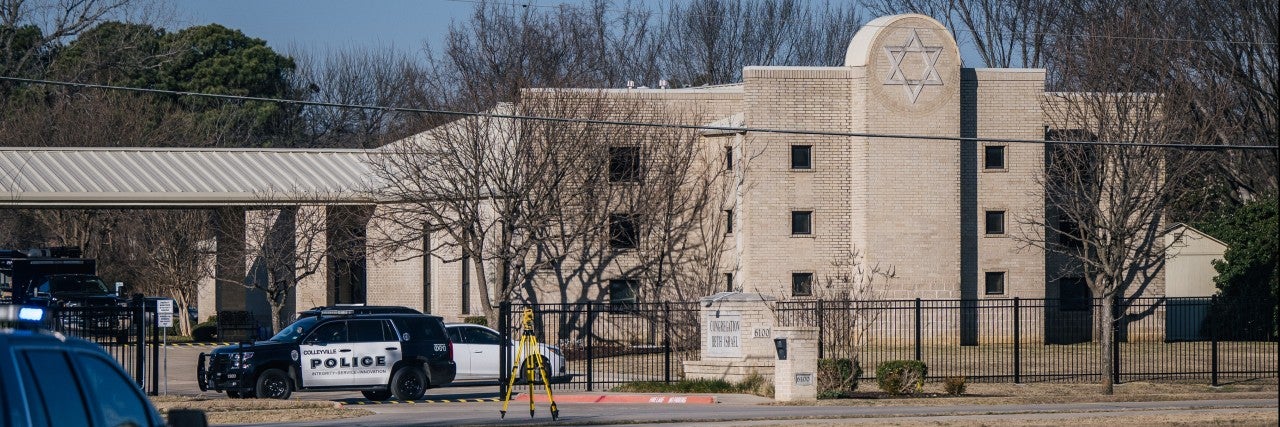January 22, 2022 — Washington, D.C.
This piece originally appeared in The Virginian-Pilot.
Last Saturday, during Judaism’s Sabbath, an armed intruder at a Colleyville, Texas, synagogue held hostage the rabbi and three of his congregants for nearly 12 hours.
This is not the first attack on a synagogue in the United States. Memories of the massacre at the Tree of Life Synagogue in Pittsburgh in 2018 and the shooting at the Chabad House in Poway, California, in 2019 are still fresh. FBI statistics found Jews were the target of nearly 55% of reported religiously based hate crimes in 2020, despite accounting for 2% of the American population. In Virginia in 2019, 50% of hate crimes targeted Jews.
In the Jewish community, there is a sense of dread and abiding concern. According to the American Jewish Committee’s 2021 State of Antisemitism in America survey, 90% of American Jews feel that antisemitism is a problem and 82% believe that it is getting worse. Many of us have seen this pattern before.
Following these high-profile incidents, the Jewish community receives support from our friends in other ethnic and religious communities — expressions that are much appreciated. We even hear the outrage in people’s voices.
We must first understand what antisemitism is. It’s easy to identify the neo-Nazis in Charlottesville threatening Jews in the street or “leaders” using age-old conspiracy theories. But antisemitism comes from all sides — from the far-right, the far-left, in the name of religion and even from ignorance. When Orthodox Jews are attacked by teens on the streets of New York, for example, it’s simply because they are Jews. And that’s the most frightening thing of all.
According to the International Holocaust Remembrance Alliance working definition of antisemitism, adopted by more than 30 countries, including the U.S. departments of State and Education, “Antisemitism is a certain perception of Jews, which may be expressed as hatred toward Jews.” It also includes promoting age-old conspiracy theories, such as the Jews control the banks or the media, or the idea that Jews don’t have the right to a state in their ancient homeland. It includes Holocaust denial or demonizing Israel and calling for its destruction.
First, educate yourself. Learn more about antisemitism so you can speak up when you hear a remark or see something that threatens Jews. Antisemitism has no place in the mainstream of our society and must be called out. Many people don’t even know that they are expressing antisemitic ideas; an educated person can enlighten them and help eradicate these dangerous beliefs. This is particularly important on social media and in other public forums.
Second, act. Jewish organizations and their allies continuously call for action to fight antisemitism. Participate in those campaigns. Non-Jewish voices are heard the loudest when protesting antisemitism.
We must not allow antisemitism, casual or violent, to become an acceptable part of the American landscape. Like we cannot ask the Black community to confront racism alone, Jews need allies in this fight. After all, antisemitism is a societal problem, not just a Jewish problem.
Sadly, there are no simple answers to root out antisemitism. Codes of conduct on Google or Facebook, public policy, the courts and the legislative process only go so far. Changing hearts and minds is another matter. Since George Washington’s letter to the Jewish community of Newport in 1790, in which he wrote, “For happily, the Government of the United States gives to bigotry no sanction, to persecution no assistance,” Jews have had good reason to feel secure in America.
But America has not always lived up to its ideals. Antisemitism persists. That is why we must stand up together, call out attacks for what they are, and hold the perpetrators of this most ancient of hatreds accountable. We owe our communities no less.
Alan Ronkin is Director of the American Jewish Committee Washington, DC Region.


